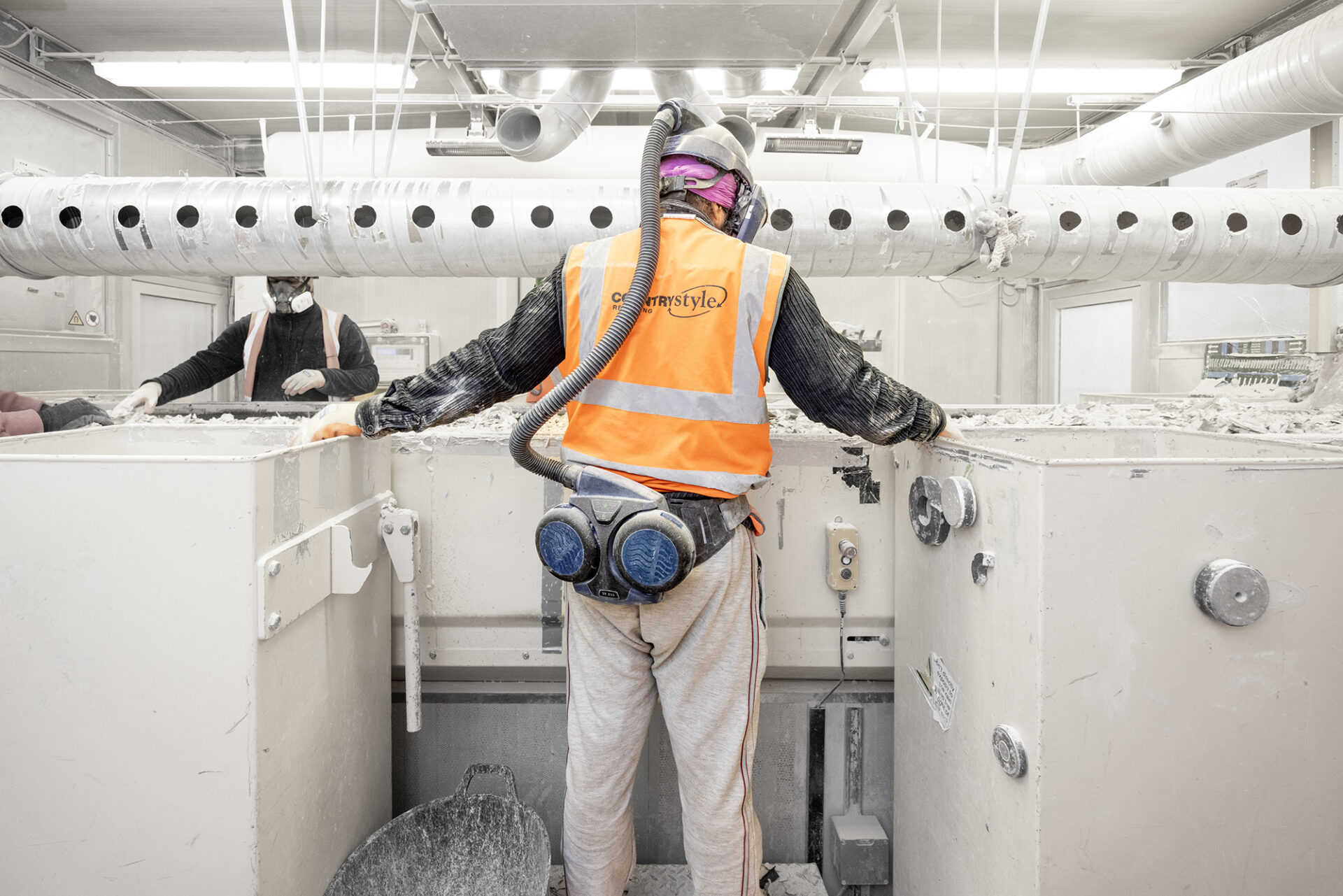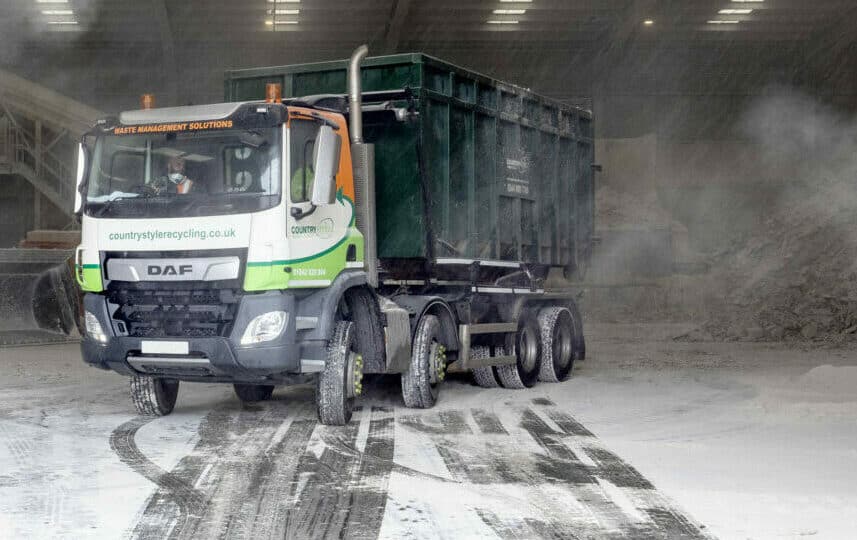Specialist Solutions
Plasterboard Recycling
A compliant, closed -loop solution for gypsum-based plasterboard waste.
A Proven Solution for Plasterboard Recycling
How is Plasterboard Recycled?
From waste reduction to social value, we embed sustainability into our operations, infrastructure, and partnerships.
1
Arrival at Ridham
2
Inspection and Handpicking
3
Processing
4
Powder Separation
Why Recycle Plasterboard?
Contributing to a circular economy
Recycling plasterboard reduces the demand for raw material extraction and diverts waste from landfill, enabling recovered material to be used in new plasterboard production or in agricultural applications.
Why Plasterboard can’t go to Landfill
The legal requirement to separate
In the UK, Plasterboard legally cannot be sent to standard landfills. If plasterboard is taken to landfill, it can release harmful gasses and cause further harm to the environment. Segregating your plasterboard waste is the most cost-effective and environmentally safe solution for your business.
Our Specialist Facility
A certified facility with large scale processing ability.
Our Ridham dock plasterboard facility is purpose built to process 120,000 tonnes of gypsum waste annually. We are a member of GRAUKI so we ensure that our recovered gypsum powder meets PAS109 standards, allowing it to be used immediately for manufacturing in the UK.



A Strategic Partnership for Your Business Waste

Initial Consultation

Receive a Tailored Proposal

Join
Frequently Asked Questions
Don’y see your question? Call our Ashford team on 0344 880 7700.
Plasterboard may only be placed into a dedicated single waste stream recycling skip. It must be separated from other general, commercial or industrial waste. This is because it is illegal to dispose of plasterboard and gypsum based material in landfills that accept general waste.
In its normal state, plasterboard is not classified as hazardous waste or deemed a threat to human health. However, this material can become problematic when disposed of in general waste landfills. When gypsum-based materials come into contact with moisture and decomposing organic matter, a chemical reaction occurs. Hydrogen sulphide gas is released into the environment which can cause unpleasant odours and harm people, animals, and the environment.
If you’re wondering whether you can take plasterboard to the dump, some council-run recycling centres may accept small amounts of gypsum-based waste. It’s best to check with your local authority first. For businesses that produce a lot of plasterboard waste, it is much more cost-effective to hire an authorised waste carrier, like us, to handle your waste disposal.
